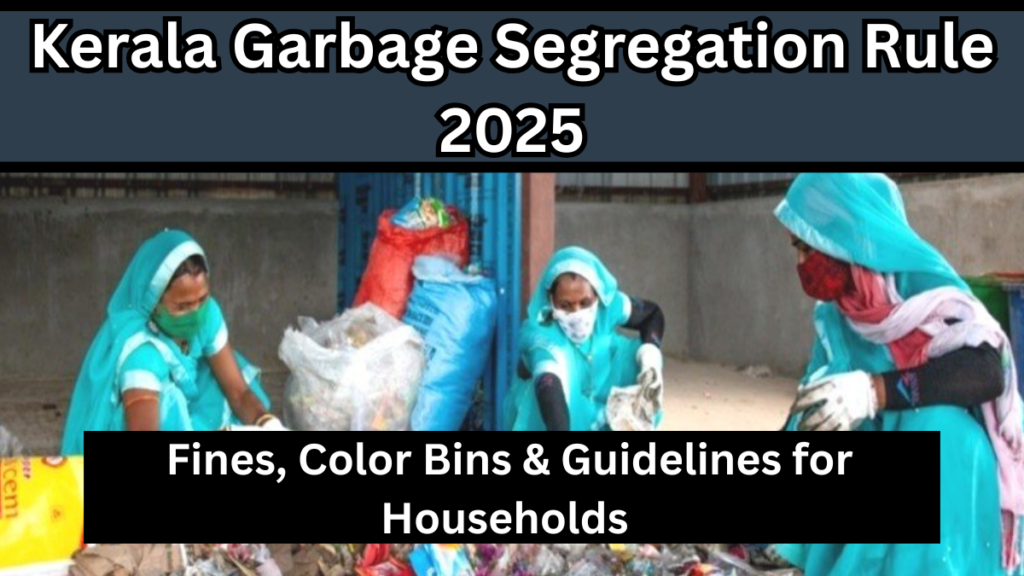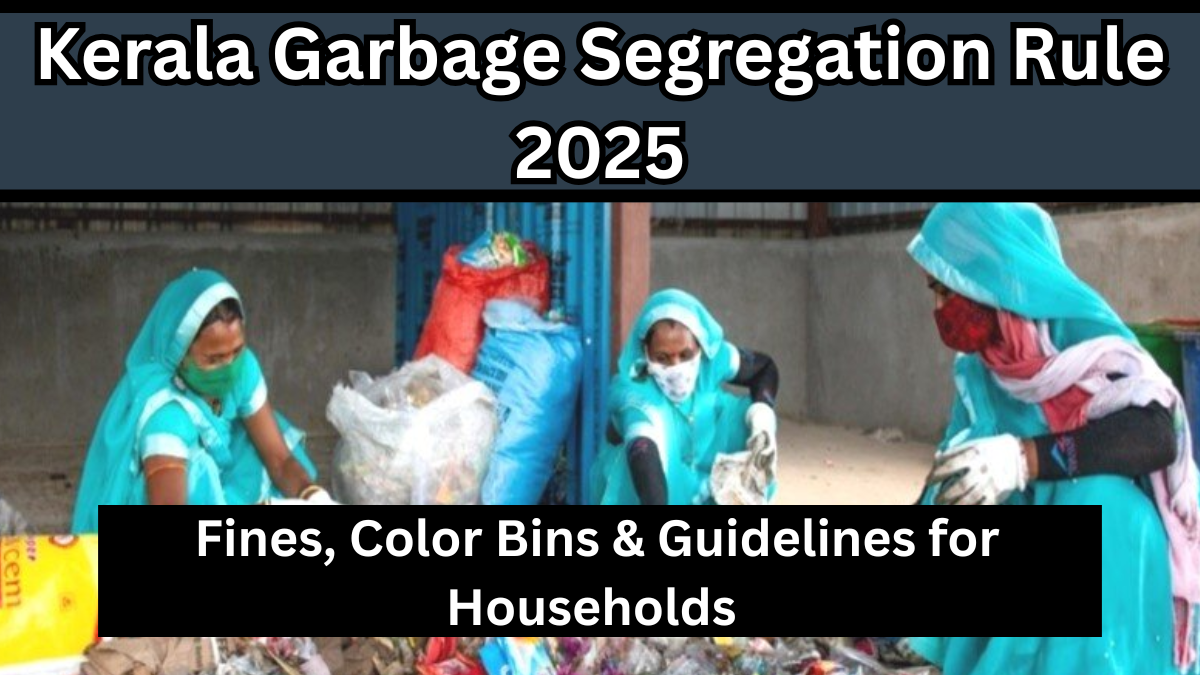Kerala has taken a bold and much-needed step towards a cleaner and greener future. With the Kerala Garbage Segregation Rule 2025, the government is urging citizens to adopt responsible waste practices—starting right at home. This new initiative isn’t just a policy update, but a lifestyle shift, especially for families looking to make their surroundings healthier.
Let’s explore what this rule means for you, how it affects household waste management in Kerala, and the fines you might face if you don’t comply.

What Is the Kerala Garbage Segregation Rule 2025?
The Kerala Garbage Segregation Rule 2025 is a government-mandated initiative that makes waste segregation at the source compulsory for all households, commercial units, and institutions. The goal is to simplify recycling and reduce landfill usage by separating waste into predefined categories before collection.
Why It Matters: The Push for Responsible Waste Practices
Kerala has long struggled with mounting waste and limited landfill space. With this rule in place, the focus is now on:
-
Minimizing environmental pollution
-
Encouraging recycling and composting
-
Creating awareness around sustainable living
-
Reducing health risks from mixed waste disposal
Color-Coded Bins for Easy Waste Segregation
To make the process simple and uniform, the rule introduces color-coded bins for different types of waste. Here’s what you’ll need to follow:
| Bin Color | Waste Type | Examples |
|---|---|---|
| Green | Biodegradable Waste | Food scraps, vegetables, garden waste |
| Blue | Non-Biodegradable Waste | Plastic, wrappers, packaging materials |
| Red | Hazardous Waste | Batteries, chemicals, sanitary waste |
| Yellow | E-Waste | Old chargers, mobile phones, appliances |
| White | Recyclables | Paper, cardboard, glass bottles |
These bins must be placed in every household and used properly to sort daily waste.
Penalties and Fines for Non-Compliance
Strict enforcement is key to making this rule effective. The Kerala Garbage Segregation Rule 2025 outlines the following penalties for individuals or households that fail to segregate waste:
| Violation | Fine (INR) |
|---|---|
| Failure to segregate at source | ₹250 – ₹500 |
| Using wrong bins repeatedly | ₹500 – ₹1,000 |
| Illegal dumping or burning of waste | ₹2,000 – ₹5,000 |
| Commercial units not complying | ₹10,000+ |
Repeat offenders may also face legal action, depending on the severity of the violation.
Guidelines for Households to Comply
To make compliance easier, here are simple steps households can follow:
-
Set up five separate bins at home as per color codes
-
Train family members and domestic help on how to sort waste
-
Compost biodegradable waste in your backyard or balcony
-
Schedule regular pickups with your local municipal authority
-
Avoid burning or mixing waste, especially plastic and chemicals
By adopting these habits, you’re not just following a law—you’re contributing to a sustainable Kerala.
Role of Local Bodies and Awareness Drives
Municipalities and local governing bodies will:
-
Conduct awareness drives through resident associations and schools
-
Offer subsidies or support for composting units and color-coded bins
-
Ensure strict monitoring of waste segregation through door-to-door inspections
The rule also opens doors for tech-enabled waste collection solutions in the future, enhancing household waste management in Kerala even further.
FAQs
Is it mandatory for all households to follow the Kerala Garbage Segregation Rule 2025?
Yes, it is now compulsory for every home, apartment, and institution to segregate waste at the source.
Where can I buy the color-coded bins?
Most local hardware stores and online platforms offer these bins. Some panchayats may distribute them at subsidized rates.
What happens if my waste is found mixed?
You could be fined ₹250 or more, and repeated violations may lead to higher penalties or legal action.
How does this help with household waste management in Kerala?
It simplifies waste processing, reduces landfill load, and promotes eco-friendly disposal, making homes cleaner and safer.
Final Thoughts
The Kerala Garbage Segregation Rule 2025 is more than just a legal requirement—it’s a call to action for every citizen. By following the simple steps of sorting and segregating, households can lead the way toward a cleaner, more sustainable Kerala.
If you haven’t made the shift yet, now is the time. Your daily habits can shape the environmental future of the state.
Click here to learn more
